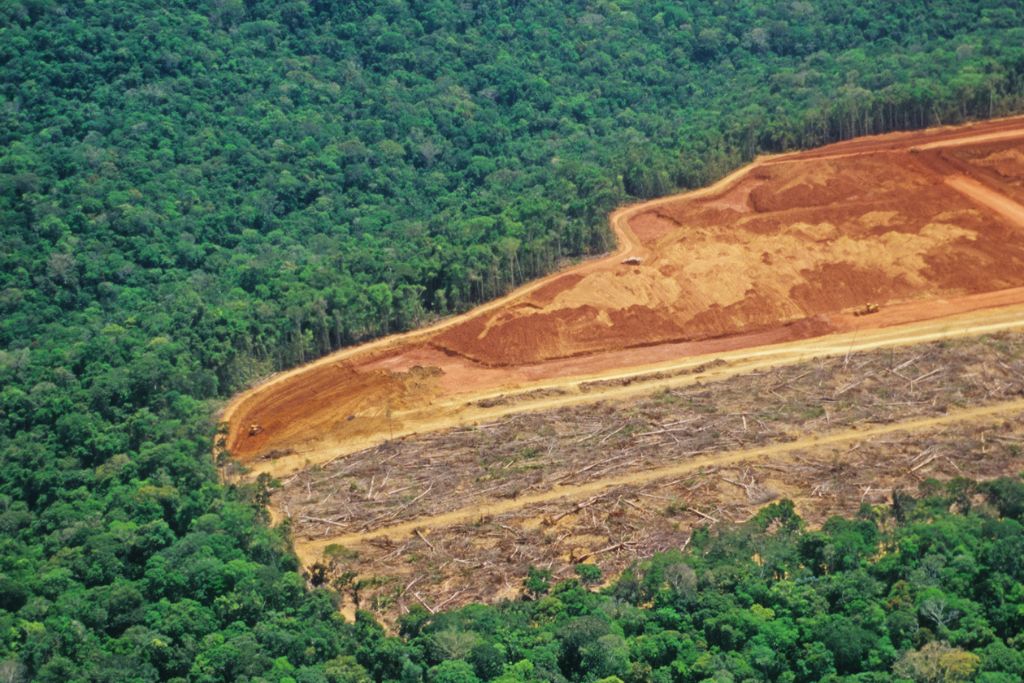As President Biden visits the Amazon this month, a new report finds that the US should do more to protect vital ecosystems by addressing the dirty money behind environmental crimes.
—
A new report by the Financial Accountability and Corporate Transparency (FACT) Coalition looking at 230 environmental crimes in countries in the Amazon region provides new insights into how environmental crimes such as illegal mining, logging, and wildlife trafficking are being committed and how their associated profits are being laundered.
Many prosecutors and investigators are currently failing to “follow the money” in environmental crime cases, the report found. In fact, only one in three analyzed cases involved a financial investigation. As a result, many cases yield low-level arrests and seizures while those who are really responsible for the crime – and are benefiting financially from this $281 billion a year illicit economy – walk free. This creates a vicious cycle in which environmental crimes are widely perceived to be “low-risk, high-reward”, thereby attracting increasing interest from criminal groups seeking to benefit.
The report, published last month, found that the US was the most commonly involved foreign destination for both illegally-sourced natural resources – including gold – as well as for illicit proceeds from their sale. This builds on earlier research by FACT that found that the US has been a safe haven for illicit financial flows from environmental crimes due to lax anti money laundering requirements. In July, Treasury Secretary Janet Yellen noted that international environmental crimes “often entail misusing and abusing the U.S. financial system.”
Among the 230 cases analyzed in the report, shell and front companies were the most common methods used to launder the proceeds of environmental crimes. These criminals opt to use corporate structures because of the anonymity they provide, as well as the veneer of formality and respectability. As EUROPOL has noted in their work on environmental crime, “The fact that criminal networks largely use businesses makes these offenses less visible.”
Moreover, EUROPOL explained that “the businesses are often rapidly opened and dissolved and commercial routes frequently change.”
Other money laundering methods identified in the FACT report included real estate transactions, bulk cash smuggling, front men, abuse of financial institutions, and trade-based money laundering (TBML).

Going forward, FACT recommends that countries in the region integrate financial investigations into their environmental crime investigations and enforcement actions. The US government should support these efforts through capacity building and technical assistance, leveraging the newly-established framework of the US Treasury’s Amazon Region Initiative against Illicit Finance to help countries more successfully “follow the money.”
It is also critically important to address the pervasive and harmful role of anonymous shell companies, the report argues. An important policy solution is requiring companies to declare who really owns them, or their so-called “beneficial” owners. Countries in the region should redouble efforts surrounding corporate ownership in line with the Financial Action Task Force’s (FATF) Recommendation 24. As the most common foreign destination country for the proceeds of environmental crimes, parallel progress on beneficial ownership must also be pursued in the United States. The US Treasury should continue with robust, meaningful implementation of the bipartisan Corporate Transparency Act (CTA) to address issues with US shell companies.
Finally, given that many environmental crimes in the Amazon region have financial ties to the US, the report argues that the country should assume greater engagement and leadership on issues of illicit finance and environmental crime in the Western Hemisphere.
As FACT noted in a recent statement, “The US should work with partner countries to address the most common avenues of illicit finance that environmental criminals use to profit from the destruction of our ecosystems. This report provides important insights on where to start.”
This story is funded by readers like you
Our non-profit newsroom provides climate coverage free of charge and advertising. Your one-off or monthly donations play a crucial role in supporting our operations, expanding our reach, and maintaining our editorial independence.
About EO | Mission Statement | Impact & Reach | Write for us














